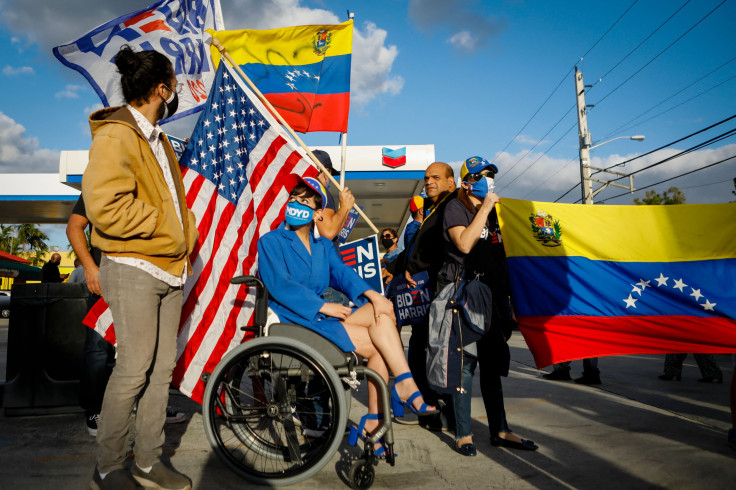
Uncertainty has taken hold among Venezuelans in South Florida as the United States increases pressure on their country and debates intensify within the community about the prospect of U.S. military action, as a new report from The New York Times has revealed.
In Doral, Florida., where Venezuelans make up a significant share of the population, questions about whether and how President Donald Trump might escalate become part of daily conversations.
"What's going to happen?" friends and neighbors ask one another, said Liz Rebecca Alarcón, a political analyst, to the outlet. "We don't know what the outcome is going to be or what the strategy is."
Months of escalating pressure — including lethal strikes on boats and a major buildup of U.S. naval forces in the Caribbean — have fueled speculation, even as Trump has recently signaled openness to have a conversation with President Nicolás Maduro. The mixed signals have added to what Venezuelan Americans describe as a sense of whiplash.
Yet those who fled Venezuela over the past 25 years do not agree on what course the United States should take. Some support U.S. intervention; others warn of the potential consequences. "In theory, we should be united by the same thing, which is liberty for Venezuela," said Esteban Hernández Ramos, who supports a prolonged U.S. military presence. "In practice, there's this division."
Alarcón, who favors a peaceful transfer of power to opposition leader Edmundo González, said she doubts Trump's pressure campaign will produce that outcome. Others, including former military officer José Antonio Colina, believe force is necessary. "Since that regime is there by force," he said of Maduro, "it has to be taken out by force."
But the divide is also shaped by concerns about immigration. Some Venezuelan Americans say they struggle to reconcile calls for intervention with the administration's simultaneous efforts to end Temporary Protected Status (TPS) for Venezuelans, a move that has left many facing deportation.
"There are at least 660,000 Venezuelans that are being threatened to be sent back," said Adelys Ferro, a community advocate. "How can you reconcile these realities?"
The expiration of TPS in early November has compounded anxiety. A Washington Post investigation described Venezuelans forced to abandon homes, jobs and relationships as their status vanished overnight. "Not because I want to," said Carlos Rodríguez, who left Miami for Spain, "but because I'm being forced out, again."
Immigration attorney John De La Vega said the contradiction has deeply unsettled the community. "It just doesn't make sense and really shook up people here," he said. Many Venezuelans, he added, are seeking legal help because "they truly cannot return to their country."
© 2025 Latin Times. All rights reserved. Do not reproduce without permission.





